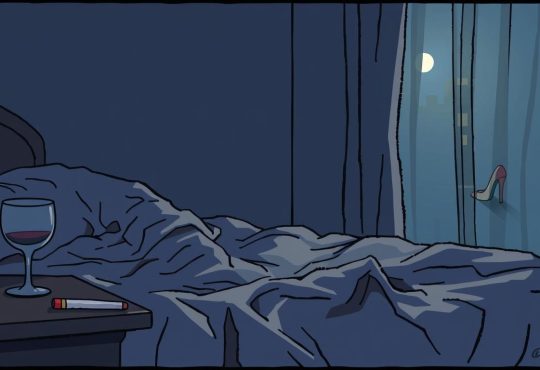
What would you do if you discovered your partner was active on a dating app? It’s a question no one wants to face, yet it’s more common than you might think. Even in seemingly happy relationships, people sometimes seek attention or excitement elsewhere.
For many, finding a spouse’s profile on Tinder can feel like a betrayal. It’s not just about the app—it’s about the emotional disconnect that might have led to this point. Boredom, a desire for validation, or even curiosity can drive someone to explore outside their marriage.
Understanding why this happens is the first step toward addressing the issue. Open communication is key. By talking openly, you can uncover the root cause and decide how to move forward. Let’s explore why this happens and how to approach the conversation.
On this Page:
Understanding the Underlying Causes of Online Behavior in Marriage
When a partner turns to a dating app, it’s natural to wonder what’s missing in the relationship. Often, this behavior stems from deeper issues that need addressing. Let’s explore the common reasons behind such actions.
Emotional Disconnect and the Search for Excitement
Over time, emotional gaps can develop in a relationship. A spouse might feel disconnected and seek validation elsewhere. Dating apps like Tinder can provide a temporary escape from routine.
For some, the thrill of new interactions can feel exciting. This doesn’t always mean they want to leave the relationship. Instead, it might be a way to fill an emotional void.
Unmet Needs and Boredom in Long-Term Relationships
Long-term relationships can sometimes fall into a rut. When one partner feels like they’re just part of the routine, they might look for attention outside the marriage. This behavior is often a cry for connection rather than a sign of infidelity.
Studies show that 30% of married men have used dating apps. Many do so out of boredom or curiosity. Understanding this can help address the root cause and rebuild trust.
By recognizing these patterns, couples can work toward a stronger bond. Open communication is key to resolving these issues and moving forward together.
Addressing the Reality When my husband is on tinder: Signals and Misconceptions
Discovering a spouse’s activity on a dating app can be unsettling, but understanding the signals is crucial. It’s not just about the app itself—it’s about what it reveals about the relationship. Let’s explore the red flags, myths, and gaps that often accompany this situation.
Recognizing Red Flags in Online Interactions
Unusual profile activity or inconsistent communication can be warning signs. For example, if a spouse is frequently active on the app late at night or during specific times of the week, it might indicate a deeper issue. Pay attention to patterns over several weeks to assess the situation accurately.
Another red flag is dismissive or scripted conversations. If interactions feel impersonal or rushed, it could signal a lack of genuine interest in the relationship. These behaviors often point to a need for attention or validation outside the marriage.
Debunking Common Myths About Tinder Activity
Many assume that using a dating app automatically means infidelity. However, this isn’t always the case. Some individuals turn to apps like Tinder out of boredom or curiosity, not necessarily to seek a new relationship.
Research shows that men are more likely to use dating apps for casual interactions, while women often seek friendship or self-validation. Understanding these motivations can help clarify the reason behind the behavior and guide the next steps.
Identifying Gaps in Attention and Connection
Digital attention on apps can highlight a lack of connection in real life. If a spouse feels like just another person in a profile list, it might reflect deeper issues in the marriage. Addressing these gaps requires open communication and a willingness to rebuild trust.
While dating via an app might seem trivial, it often signals a broader part of relational disconnect. By recognizing these patterns, couples can work toward a stronger bond and a healthier relationship.
Strategies for Open Communication and Healing
Rebuilding trust after discovering a partner’s online activity requires open communication and clear boundaries. It’s a challenging process, but with the right approach, couples can work toward healing and strengthening their bond.
Initiating Honest Conversations About Trust
Starting a conversation about trust can feel daunting. Begin by expressing your feelings without blame. Use “I” statements, like “I feel hurt when I see activity on a dating app.” This approach keeps the focus on your emotions rather than accusations.
Ask open-ended questions to understand the reason behind the behavior. For example, “What led you to create a profile?” This encourages a meaningful dialogue and helps uncover the root issue. Listening without judgment is key to resolving misunderstandings.
Setting Boundaries and Rebuilding Intimacy
Clear boundaries are essential for rebuilding trust. Discuss what is acceptable in your relationship regarding online behavior. For instance, agree to delete dating profiles and avoid similar apps moving forward.
Consistency is crucial. Check in with each other weekly to ensure both partners feel heard and valued. Over time, these small steps can help rebuild intimacy and strengthen your connection.
Consider writing a personal post or note to express your feelings. This can be a powerful way to communicate when face-to-face conversations feel overwhelming. It also provides a tangible reminder of your commitment to healing.
By addressing the issue openly and setting clear expectations, couples can bridge the gap between digital behavior and real-life connection. Trust takes time, but with effort, it can be restored.
Conclusion: Moving Forward and Rebuilding Trust
Navigating trust issues in a relationship can feel overwhelming, but understanding the root cause is the first step. Whether it’s emotional disconnect or unmet needs, addressing these issues openly is crucial. Honest conversations can help uncover the reason behind the behavior and pave the way for healing.
Reflect on your relationship and consider actionable steps to rebuild intimacy. Setting clear boundaries and checking in weekly can strengthen your bond. While one photo or a few weeks of neglect may cause tension, focusing on the bigger picture helps.
Rebuilding trust takes time, but with mutual respect and continuous dialogue, it’s possible. Choose a new way forward together—one that prioritizes connection and understanding. Every relationship has its challenges, but with effort, you can create a stronger, more fulfilling partnership.










